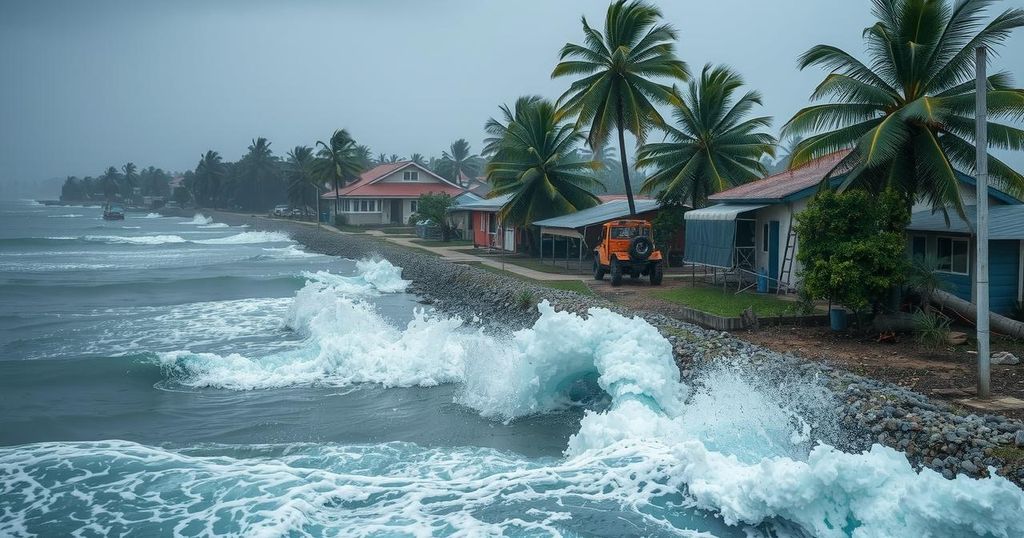Severe Impact of Tropical Cyclone Chido on Mozambique: An Overview

Tropical Cyclone Chido struck Mozambique on December 15, 2024, causing severe devastation in northern regions, particularly Cabo Delgado. As of December 17, 174,000 people were affected, with 34 confirmed deaths and over 35,000 homes damaged. The cyclone has significantly disrupted agricultural production and critical infrastructure, heightening the risk of waterborne diseases and threatening food security for the majority of the population reliant on agriculture.
On December 15, 2024, Tropical Cyclone Chido struck the district of Mecufi in Cabo Delgado Province, Mozambique, unleashing devastating winds reaching up to 120 km/h and torrential rainfall that exceeded 250 mm within a single day. This catastrophic weather event has ravaged northern Mozambique, with significant impacts reported in the provinces of Cabo Delgado, Nampula, and Niassa, alongside secondary repercussions in Tete and northern Zambézia. According to the National Institute for Disaster Management and Risk Reduction (INGD), by December 17, at least 174,000 individuals had been affected, and the death toll stood at 34, with 319 injuries confirmed. The cyclone obliterated more than 35,000 homes and compromised vital infrastructure, including schools, healthcare facilities, and water systems.
The situation remains dire, particularly in Cabo Delgado, where ongoing conflict-related displacements and a cholera outbreak amplify pre-existing vulnerabilities. In the Mecufi and Chiure districts of Cabo Delgado, the cyclone’s destruction is nearly total, affecting every household and incapacitating health services. Furthermore, the devastation inflicted upon agriculture has been considerable, with numerous hectares of maize, beans, sesame, and cassava crops lost, leaving communities without essential food resources and no immediate recovery options.
In Nampula Province, particularly in Memba and Erati districts, over 3,600 families have reported significant damages to their fishing assets and livelihoods. The destruction of water and sanitation infrastructure has escalated the risk of waterborne diseases, prominently cholera, undermining public health efforts. Disruption of communication and power networks only exacerbates the challenges faced by humanitarian responders.
With more than 80 percent of the Mozambican population depending on agriculture for sustenance and income, immediate intervention is crucial to assist affected households in restoring their livelihoods and ensuring access to nutritious food. These actions are necessary to help communities rebuild their lives and mitigate the cyclone’s detrimental effects.
Tropical Cyclone Chido represents a significant humanitarian crisis for Mozambique, exacerbating the existing vulnerabilities faced by the population. Cabo Delgado Province, which is already grappling with conflict and displacement, faces additional challenges from this cyclone. The region’s reliance on agriculture for the majority of its inhabitants means that the destruction wrought by the cyclone directly threatens food security and economic stability. Disease outbreaks are a constant threat following such natural disasters, heightening the urgency for effective disaster response and recovery strategies.
The destruction caused by Tropical Cyclone Chido has severely impacted Mozambique, particularly in Cabo Delgado, Nampula, and Niassa provinces. With lives lost, injuries reported, and infrastructure devastated, urgent humanitarian aid and recovery efforts are essential. The cyclone not only compounds existing challenges but also threatens the livelihoods and health of the affected communities. Immediate action is critical to restore agricultural production, ensure food security, and address public health risks in the aftermath of this disaster.
Original Source: reliefweb.int








